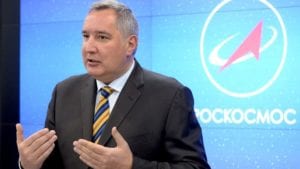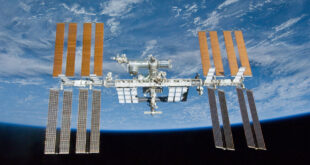 The Russian state space corporation, Roscosmos, has announced that it intends to initiate international talks to ban the testing and use of Kinetic Energy (KE) anti-satellite (ASAT) weapons.
The Russian state space corporation, Roscosmos, has announced that it intends to initiate international talks to ban the testing and use of Kinetic Energy (KE) anti-satellite (ASAT) weapons.
Roscosmos chief Dmitry Rogozin said that the talks are being proposed “with the aim of banning full-scale anti-satellite weapon tests held by way of destroying spacecraft and littering low orbits.” Rogozin was speaking at an event in Korolyov, Moscow Region, on 22 November 2019. Rogozin added that he is concerned about KE-ASAT tests debris from them “may destroy the [International Space] station,” the Russian news agency TASS quotes Rogozin as saying.
The proposed Roscosmos talks come after a year that saw India launch its first KE-ASAT test on 27 March 2019, making it the fourth country after China, Russia, and the United States to do so.

The Roscosmos initiative is the latest in a litany of space arms control proposals over the decades, the most recent of which saw the European Union (EU) propose a non-binding code of conduct restraining certain activities in space that was backed by Australia, Japan, and the United States.
The EU’s proposed code of conduct was countered by a Sino-Russian sponsored draft Treaty on the Prevention of the Placement of Weapons in Outer Space, the Threat or Use of Force against Outer Space Objects (PPWT).
The proposed EU code of conduct was vehemently opposed by China, Russia, and their allies, while the PPWT was vigorously opposed by the United States, EU, Japan, and Australia.
Details of the latest Roscosmos proposed ban on KE-ASAT weapons testing and use have yet to be publicly presented.
 SpaceWatch.Global An independent perspective on space
SpaceWatch.Global An independent perspective on space




